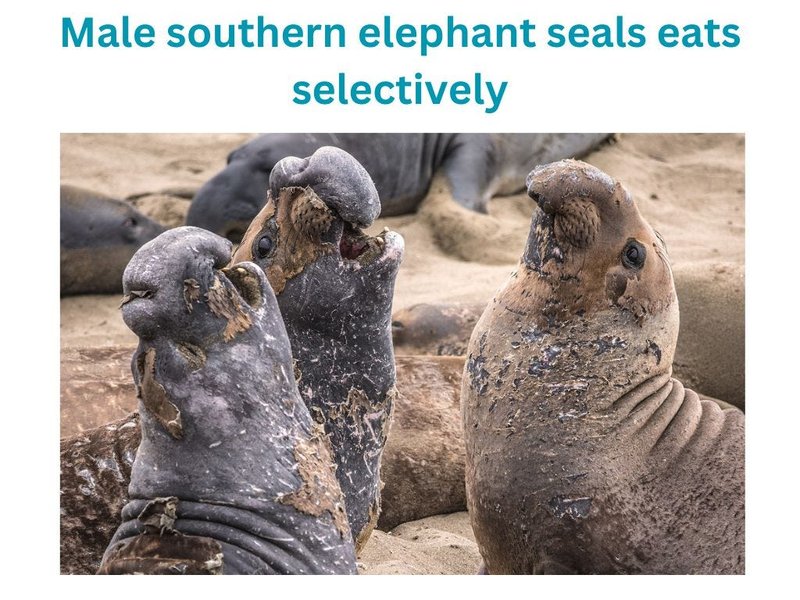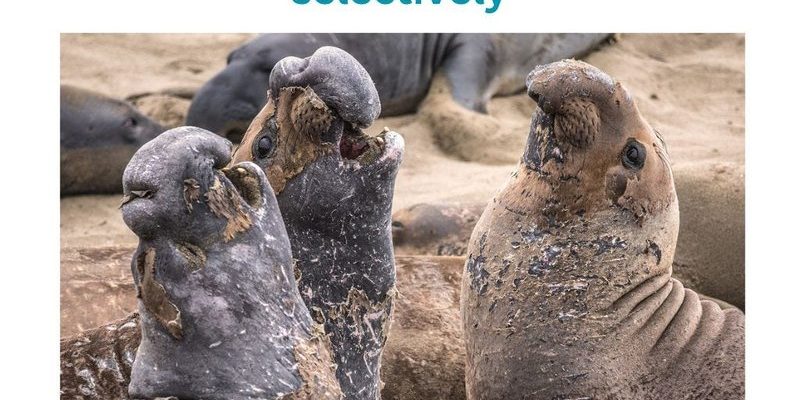
When you think about elephant seals, you might picture those dramatic beach scenes where males bellow and flop around, but their lives revolve around finding food. Picture this: during their time at sea, they can dive for hundreds of meters—sometimes as deep as a skyscraper is tall—to hunt for their meals. Their feeding habits are a critical part of their survival, especially during the breeding season when they bulk up for long periods without eating. So, what exactly do these hefty animals eat?
What Do Elephant Seals Eat?
Elephant seals primarily feast on small fish and squid. But it’s not just any kind of fish; they have a taste for larger fish that can fill their hefty bellies. Here’s the scoop: their usual menu includes species like golden and rockfish, along with various types of squid. They are also known to indulge in some crustaceans on occasion—think shrimp and similar critters.
Feeding depth is an interesting part of their diet. When diving, elephant seals can reach depths up to 1,500 meters (or nearly a mile deep). That’s like diving to the bottom of a really deep swimming pool and then some! This deep diving helps them access food that other predators might not be able to reach. Imagine being a superexclusive restaurant for only the biggest and boldest ocean predators!
How Do They Hunt?
You might be wondering how these hefty seals manage to catch their food. Here’s the thing: they’re equipped like oceanic ninjas. With large bodies and streamlined shapes, they glide smoothly through the water. They have strong, muscular flippers that help them propel themselves while hunting.
When elephant seals hunt, they often go solo. They can dive for up to an hour, holding their breath, which is pretty impressive. During these dives, they use their sensitive whiskers to detect vibrations in the water, helping them locate tasty prey. It’s like having built-in sonar! This hunting technique allows them to be efficient predators in their underwater environment.
Feeding Habits During Breeding Season
Breeding season brings about some dramatic changes in the feeding habits of elephant seals. During this time, males and females gather on beaches to mate and give birth. Here’s where it gets interesting: after giving birth, females fast for about a month while nursing their pups. They rely on the fat reserves they built up while feeding before the breeding season.
Males, on the other hand, may also fast for weeks while they defend their territory from rivals. They focus on building up their blubber reserves before all that action starts. That’s like going on an all-you-can-eat diet before a massive fitness competition. This strategy ensures they have enough energy and nourishment to survive during those strenuous periods.
The Role of Blubber in Their Diet
Let’s talk about blubber, that thick layer of fat underneath the skin of elephant seals. It’s not just for show; it plays a crucial role in their feeding habits and overall health. Blubber acts as insulation, keeping them warm in the chilly ocean waters as they dive deep. More so, it serves as an energy reserve when food is scarce.
Strong blubber reserves mean that elephant seals can withstand long fasting periods. When they’re at sea, this fat helps them maintain their energy while they dive for food. So, you see, a healthy diet rich in nutritious squid and fish translates to a well-padded elephant seal. It’s their very own survival strategy in the harsh ocean environment.
How Do Human Activities Impact Their Food Sources?
Human activities can have a significant impact on the feeding habits of elephant seals. Overfishing, pollution, and climate change all change the dynamics of their ocean environment. When fish populations decline due to overfishing, seals may find it harder to locate food. This creates a ripple effect that can impact their overall health and reproduction.
Pollution, such as plastic waste, can also pose dangers. Ingesting plastic can harm their digestive systems, making it harder for them to absorb nutrients from their food. Climate change leads to warmer ocean temperatures, which can affect fish migration patterns. As a result, seals may find their favorite meals harder to catch.
The Importance of Elephant Seals in the Marine Ecosystem
Elephant seals are more than just charming giants on the beach; they play an essential role in the marine ecosystem. As top predators, they help regulate fish populations, which is crucial for maintaining the health of ocean habitats. When their feeding habits are disrupted, it can lead to overpopulation of some fish species, which can, in turn, affect the entire ecosystem.
Moreover, their waste contributes nutrients to the ocean floor, supporting the growth of marine plants and creatures. It’s like they’re natural gardeners of the sea! By understanding their diet and feeding habits, we can appreciate the intricate balance they help maintain in the oceanic food chain.
In summary, the diet and feeding habits of the elephant seal are fascinating aspects of these incredible marine mammals. From their deep-sea hunting techniques to their impressive blubber reserves, every detail showcases how well-adapted they are to their environment. Their role in the marine ecosystem is vital, and understanding it helps us appreciate the delicate balance of life in our oceans.
So the next time you see an elephant seal lounging on the beach, remember that there’s a lot more going on beneath the surface. Their dining choices, hunting skills, and the challenges they face are all part of the intriguing story of survival in our oceans. Let’s celebrate these marvelous animals and work toward preserving their habitats, ensuring they can continue to thrive for generations to come!

